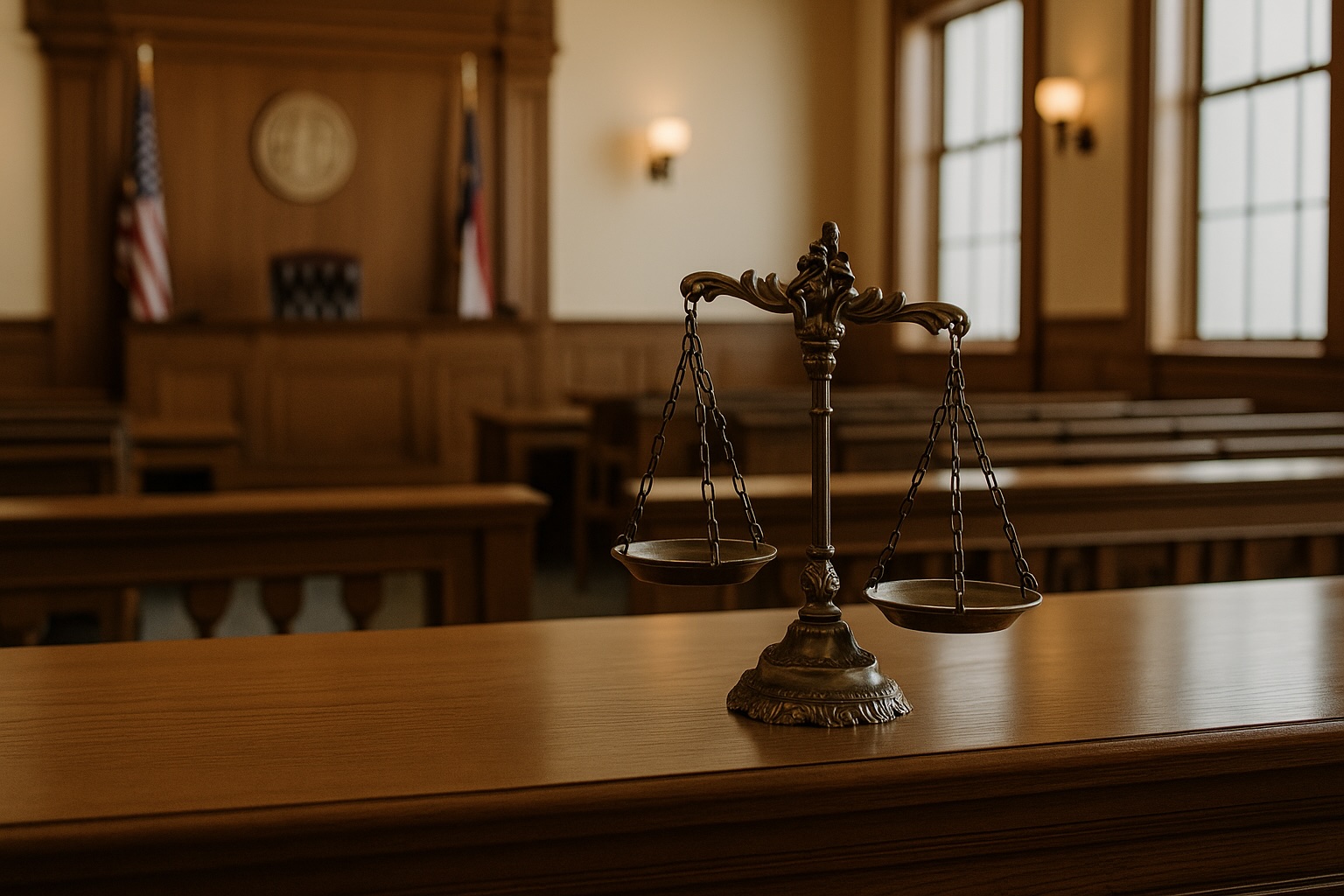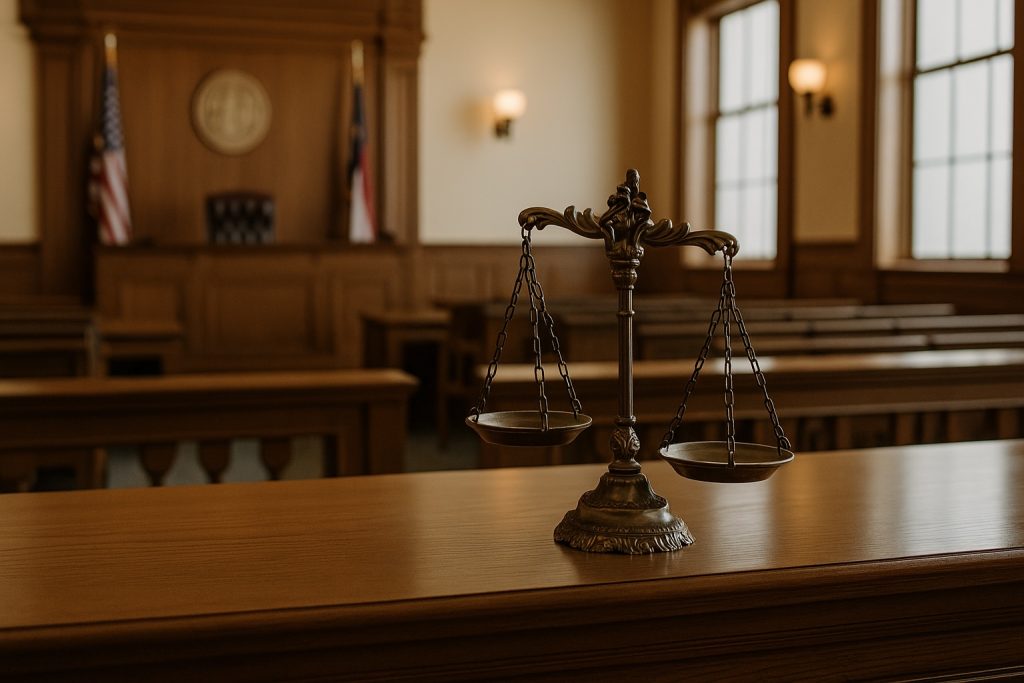
Navigating Criminal Charges in North Carolina: What to Expect in Mecklenburg and Lenoir County.
If you’ve recently been charged with a crime in Mecklenburg County (Charlotte) or Lenoir County (Kinston), North Carolina, you’re likely feeling overwhelmed, confused, and uncertain about what lies ahead. The criminal justice system can be intimidating—especially if this is your first encounter with the law.
At The Emory Law Firm, we’re here to guide you through every stage of the legal process with clarity, professionalism, and fierce advocacy. Whether you’re facing a misdemeanor or a serious felony, this article breaks down what to expect, what your rights are, and why hiring a local criminal defense attorney is critical to your outcome.

Step 1: The Arrest or Criminal Complaint
Criminal cases typically begin in one of two ways:
• You’re arrested on the spot (often during a traffic stop, domestic dispute, or alleged public offense).
• You receive a criminal summons or are notified that a warrant has been issued for your arrest based on an investigation.
In either case, your first contact with the legal system will trigger a chain of procedural steps—and every move you make can impact your future.
Step 2: The Booking and Bail Process
After an arrest in Charlotte (Mecklenburg County) or Kinston (Lenoir County), you’ll be taken to a local detention facility for fingerprinting, mugshot and recording of charges
From there, a magistrate will determine whether you are eligible for release on bond, a written promise to appear, or if you must stay in custody.
🚨 Pro Tip: Your bond hearing is critical. Having an experienced defense lawyer involved early can help argue for lower bail or alternative release options.
“Facing criminal charges in North Carolina? The right defense attorney can mean the difference between conviction and freedom.”
Step 3: Your First Court Appearance (Initial Hearing)
In both counties, your first court appearance—called an initial appearance or arraignment—typically happens within 48–72 hours. At this hearing:
You’ll be informed of the charges
Your rights will be explained
You may be asked to enter a plea (guilty, not guilty, or no contest)
The court may assign a public defender if you cannot afford a private attorney
⚖️ This is also your first opportunity to signal to the court that you are serious about your defense by hiring a reputable criminal attorney.
Step 4: Pretrial Conferences, Motions & Discovery
Once your case moves into the pretrial phase, the prosecution will begin building their case, and your attorney will:
Request discovery (evidence the State plans to use against you)
File pretrial motions to suppress illegally obtained evidence or dismiss weak charges
Explore potential plea negotiations if appropriate
This is a strategic phase that can drastically influence whether your case goes to trial or is resolved sooner with a better outcome.
Step 5: Trial or Resolution
If your case goes to trial:
You will face a judge or jury who will evaluate the evidence and determine guilt or innocence. Trials can be short or span several days, depending on the charges.
If your case is resolved pretrial:
Your attorney may negotiate a plea deal, reduced charges, or even dismissal, depending on the strength of the evidence and the court’s disposition.
Common Charges We Defend in Mecklenburg and Lenoir County
The Emory Law Firm defends clients against a wide range of charges, including:
DWI/DUI
Drug Possession or Trafficking
Assault & Battery
Domestic Violence
Larceny and Theft
Gun and Firearm Offenses
White Collar Crimes
Probation Violations
Juvenile Offenses
Why Local Legal Representation Matters
Every county has its own judges, prosecutors, and court culture. A defense attorney who knows the Mecklenburg or Lenoir County court system inside and out will have relationships and insights that can work in your favor. At The Emory Law Firm, we bring:
✅ Local court experience
✅ Strategic defense planning
✅ A reputation for professionalism and results
✅ Personalized attention and communication
What Are the Penalties for a Criminal Conviction in NC?
Penalties vary widely depending on the severity of the charge, your criminal history, and other factors. Consequences may include:
Fines and court costs
Jail or prison time
Probation
Community service
Mandatory counseling or treatment
License suspension
A permanent criminal record
A conviction can also impact your job, housing, immigration status, and more—which is why fighting the charges is so important.
What You Should Do Immediately After Being Charged
Do not speak to police without an attorney present
Do not post about the incident on social media
Do not ignore your court date
Call a criminal defense lawyer who practices in Mecklenburg or Lenoir County
Get a Strong Defense from The Emory Law Firm
Facing criminal charges in Charlotte or Kinston? You deserve a legal team that treats you like more than a case number. At The Emory Law Firm, we fight for our clients with skill, compassion, and relentless dedication.
📍 Contact Us Today
Charlotte Office: 11020 David Taylor Dr #102, Charlotte, NC 28262 — (704) 371-4333
Kinston Office: 2422 N Herritage St, Kinston, NC 28501 — (704) 324-8500
Don’t wait. Your defense starts now.


